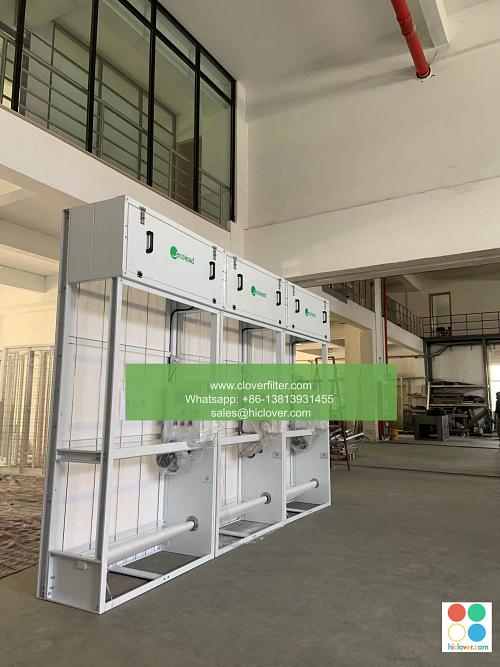Air Filter Quality Control in Remote Workplaces

As the world shifts towards remote work, it’s essential to prioritize the health and well-being of employees in isolated or decentralized workspaces. One crucial aspect of maintaining a healthy environment is air quality control, which relies heavily on the quality of air filters used in heating, ventilation, and air conditioning (HVAC) systems. In this article, we’ll explore the importance of air filter quality control in remote workplaces, highlighting key areas of application, and discussing the benefits of implementing effective air filtration systems.
Importance of Air Filter Quality Control
Air filter quality control is vital in remote workplaces, where employees may be more susceptible to airborne pollutants and allergens due to limited ventilation and air exchange. Poor air quality can lead to a range of health issues, including respiratory problems, headaches, and fatigue, ultimately affecting employee productivity and overall well-being. By implementing high-quality air filters and regular maintenance schedules, employers can minimize the risks associated with poor air quality and create a healthier work environment.
Key Areas of Application
Air filter quality control is essential in various remote workplace settings, including:
* Home offices: With the rise of remote work, home offices have become increasingly common. Effective air filtration systems can help remove airborne pollutants, allergens, and viruses, creating a healthier work environment.
* Co-working spaces: Shared workspaces can be breeding grounds for airborne pathogens and pollutants. High-quality air filters can help mitigate these risks, ensuring a healthier environment for occupants.
* Industrial and manufacturing facilities: In these settings, air quality control is critical to prevent the spread of airborne contaminants, such as dust, fumes, and chemicals, which can have severe health and safety implications.
* Data centers and IT facilities: These environments require precise temperature and humidity control, making air filter quality control essential to prevent equipment damage and maintain optimal operating conditions.
Benefits of Effective Air Filtration Systems
Implementing high-quality air filters and regular maintenance schedules can have numerous benefits, including:
* Improved indoor air quality (IAQ): Effective air filtration systems can remove up to 99.97% of airborne pollutants, including dust, pollen, and other allergens, creating a healthier environment for employees.
* Increased employee productivity: By minimizing the risks associated with poor air quality, employers can expect improved employee productivity, reduced absenteeism, and enhanced overall well-being.
* Extended equipment lifespan: High-quality air filters can help protect equipment from damage caused by airborne contaminants, reducing maintenance costs and extending equipment lifespan.
* Enhanced energy efficiency: Regular air filter maintenance can help improve HVAC system efficiency, reducing energy consumption and associated costs.
Best Practices for Air Filter Quality Control
To ensure effective air filter quality control in remote workplaces, employers should:
* Conduct regular air filter maintenance: Schedule regular filter replacements and cleaning to prevent clogging and ensure optimal system performance.
* Choose high-quality air filters: Select filters with high MERV (Minimum Efficiency Reporting Value) ratings, which can capture smaller particles and pollutants.
* Monitor indoor air quality: Use IAQ monitoring systems to track air quality and identify potential issues before they become major problems.
* Implement a comprehensive air quality management plan: Develop a plan that includes regular maintenance, monitoring, and employee education to ensure a healthy and productive work environment.
By prioritizing air filter quality control and implementing effective air filtration systems, employers can create a healthier, more productive work environment for remote employees, ultimately benefiting both the organization and its employees. It seems like you’re ready to start a conversation or request information on a topic, but you haven’t specified what that is yet. Could you please provide more details or clarify your question? That way, I can give you a more accurate and helpful response.

